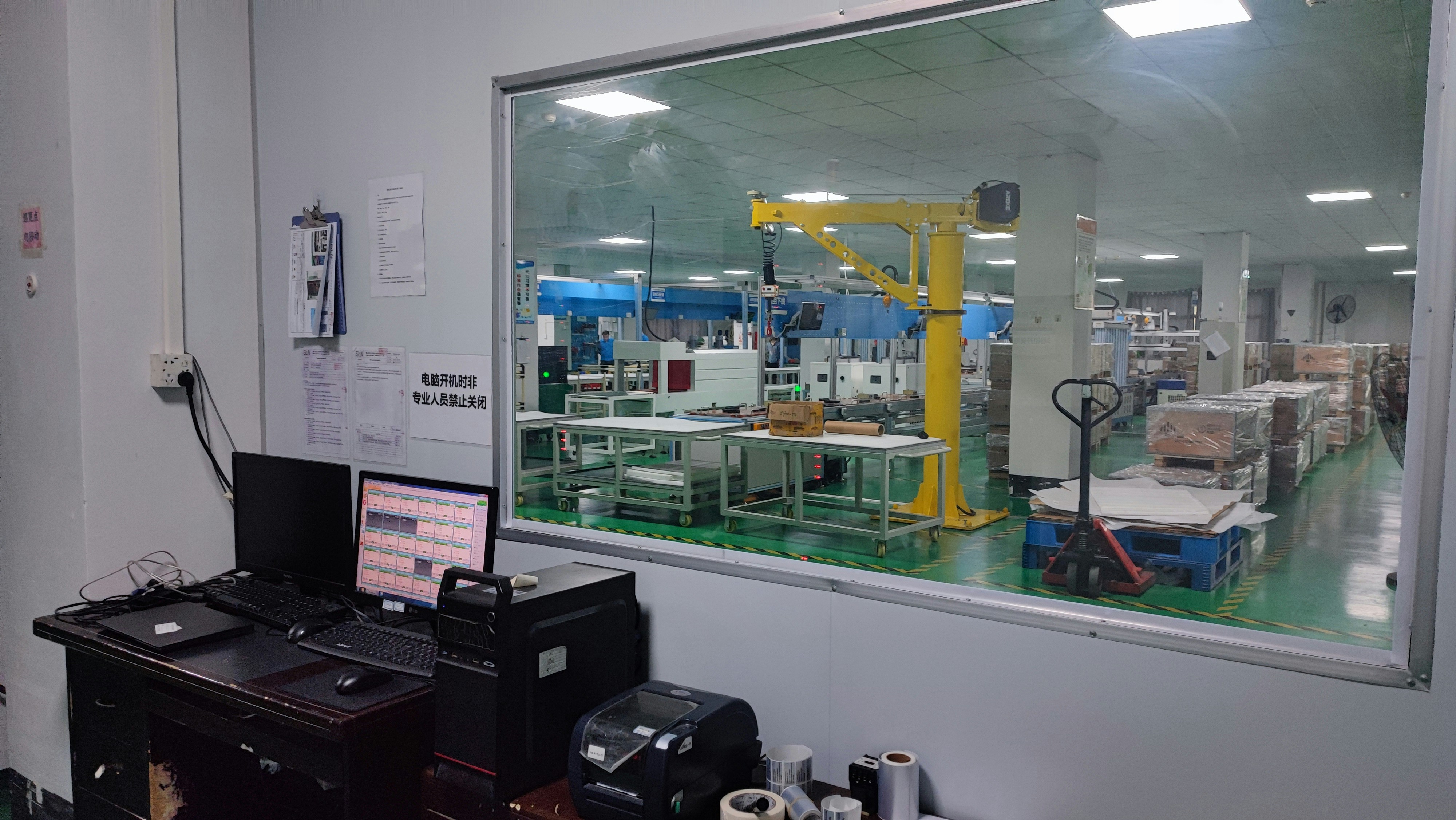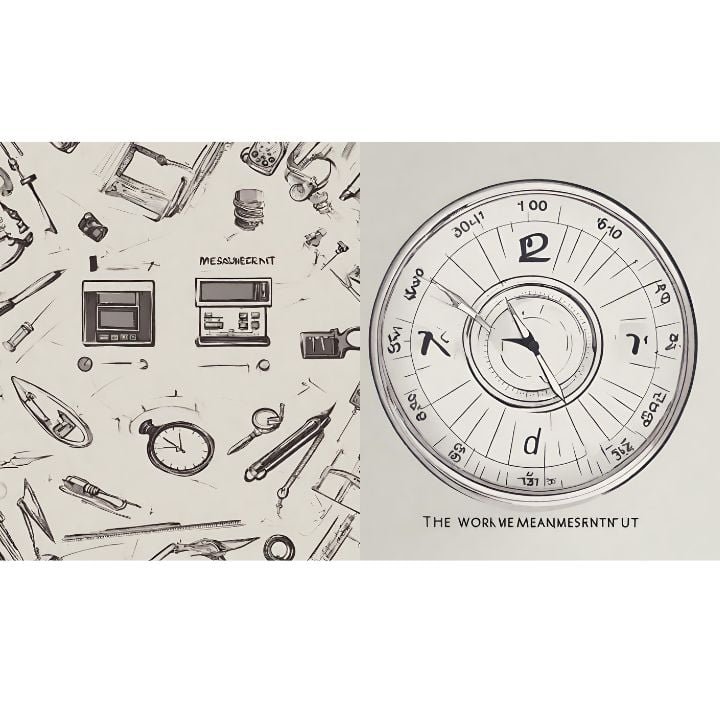Introduction to Vision 2030
Vision 2030 is a comprehensive strategic framework designed to enhance various aspects of a nation’s growth and development. Initiated with a focus on transforming the economy, this initiative sets ambitious goals and objectives that aim to foster sustainable development across multiple sectors. The key emphasis is on achieving economic diversification, social development, and environmental sustainability. By reducing dependency on oil revenues, Vision 2030 seeks to promote a more resilient and dynamic economy that thrives on innovation and investment in other industries.
Economically, the initiative aspires to create a vibrant ecosystem that encourages entrepreneurship, attracts foreign investments, and enhances workforce participation. This economic transformation is expected to lead to job creation, increased productivity, and overall improved living standards for the population. Socially, Vision 2030 aims to empower citizens, fostering a sense of community responsibility and engagement. It encourages the enhancement of education and healthcare services, ensuring that all citizens have access to the necessary resources for personal and professional development.
Moreover, the environmental component of Vision 2030 emphasizes sustainable resource management, promoting practices that address climate change and environmental degradation. This aspect is particularly critical as it aligns with global efforts to achieve sustainability and combat negative environmental impacts. The initiative recognizes the importance of balancing economic advancement with environmental protection, aiming to create a sustainable future for subsequent generations.
The importance of these aspirations cannot be overstated, as they are fundamental to fostering national growth and development. By successfully implementing the strategies outlined in Vision 2030, the nation can navigate emerging global challenges, thus ensuring a prosperous, sustainable future that meets the needs of its citizens in a rapidly changing world.
Role of Industrial Engineering
Industrial engineering is a branch of engineering that concentrates on the design, improvement, and installation of integrated systems involving people, materials, information, equipment, and energy. The discipline seeks to optimize complex processes and systems to enhance efficiency, productivity, and quality across various industries. By employing principles derived from mathematics, physics, and social sciences, industrial engineering plays a crucial role in streamlining operations and maximizing resources.
At the core of industrial engineering lies the emphasis on process optimization. This includes analyzing workflows, eliminating waste, and improving overall system performance. Through the application of various analytical techniques, such as simulation, statistical analysis, and operations research, industrial engineers can effectively identify bottlenecks and inefficiencies that impede productivity. Consequently, these professionals work towards developing effective solutions that not only boost operational efficiency but also ensure the quality of the output remains intact.
The relationship between industrial engineering and operational excellence is particularly significant. Industrial engineers strive to create systems that are not only efficient but also flexible and responsive to changing market demands. This adaptability is crucial in today’s fast-paced business environment, where organizations must continually innovate to remain competitive. By integrating lean manufacturing principles, total quality management, and supply chain optimization, industrial engineering contributes to achieving operational excellence in various sectors, including manufacturing, healthcare, and logistics.
In essence, the role of industrial engineering extends beyond mere technical skills. It encompasses a holistic approach that integrates human factors, technology, and organizational structures to drive continuous improvement. Through the implementation of effective methodologies and practices, industrial engineering sustains an organization’s ability to meet its strategic goals while adhering to the Vision 2030 initiatives. Thus, it serves as a vital component in propelling industries toward sustainable growth and enhanced performance.
Alignment of Industrial Engineering with Vision 2030 Goals
The Vision 2030 initiative encompasses a broad range of objectives aimed at fostering economic growth, promoting sustainability, and enhancing overall quality of life. At the heart of this transformative agenda is the critical role of industrial engineering, which offers valuable methodologies and frameworks that can effectively support these goals. Industrial engineers utilize principles that streamline processes, optimize resource allocation, and improve operational efficiency, thereby aligning seamlessly with the Vision 2030 goals.
One of the primary focus areas of Vision 2030 is sustainability. Industrial engineering contributes to this objective by facilitating green practices within manufacturing and service sectors. Through techniques such as value stream mapping and waste reduction strategies, industrial engineers can help organizations minimize their environmental impact. This not only supports eco-friendly initiatives but also reduces costs, thereby promoting economic diversification—a core tenet of Vision 2030.
Innovation is another critical aspect of the Vision 2030 framework. The expertise of industrial engineers in systems thinking fosters an environment where novel ideas can flourish. This discipline encourages the integration of advanced technologies, such as automation and data analytics, which are essential for developing innovative solutions that meet modern demands. By leveraging these technological advancements, industrial engineers can drive the creation of efficient systems that align with the Kingdom’s strategic objectives.
Furthermore, workforce development stands at the forefront of the Vision 2030 strategy. Industrial engineering provides a pathway for enhancing the skill sets of the labor force through process redesign and training programs aimed at upskilling employees. By aligning educational initiatives with industry requirements, industrial engineers can contribute to creating a workforce that is equipped to drive sustainable economic growth and support the Vision 2030 agenda.
Case Studies of Industrial Engineering in Vision 2030 Projects
The Vision 2030 initiative aims to transform the economic landscape, focusing on enhancing efficiency across various sectors in Saudi Arabia. Industrial engineering plays a pivotal role in this transformation by applying systematic methodologies to improve processes, reduce waste, and foster innovation. Several successful case studies illustrate the impact of industrial engineering in achieving the goals outlined in Vision 2030.
One noteworthy example is the implementation of lean manufacturing principles in the Saudi oil sector. By employing techniques such as value stream mapping, organizations identified and eliminated non-value-added activities in their production lines. This initiative not only led to significant cost savings but also improved production throughput, enabling companies to meet the increasing global demand for oil. The application of industrial engineering in this case demonstrates how process optimization can lead to enhanced service delivery and operational excellence.
Another significant case study emerged from the health sector, particularly in hospital management. Using advanced data analytics and operational research methods, a prominent healthcare facility undertook a project to streamline patient flow and resource allocation. By analyzing patient wait times and optimizing staff scheduling, the hospital achieved a notable reduction in patient discharge times, improving overall patient satisfaction. This initiative exemplifies how industrial engineering methods can optimize service delivery in health care, aligning with Vision 2030’s focus on enhancing the quality of life for citizens.
Additionally, industrial engineering plays a role in the educational sector by introducing quality management systems in universities. A case study at a leading institution demonstrated how these systems could enhance curriculum design and delivery. By employing systematic feedback mechanisms and data-driven decision-making processes, the university improved student engagement and academic performance. This case reflects the broader vision of cultivating a knowledge-based economy through effective educational strategies.
These examples showcase the practical applications of industrial engineering within Vision 2030 projects, highlighting the potential for substantial improvements in efficiency and service delivery across various sectors. They illustrate that through rigorous process analysis and optimization techniques, industrial engineering is integral to realizing the ambitious goals set forth in the Vision 2030 framework.
Challenges Faced by Industrial Engineers in the Vision 2030 Context
Industrial engineers play a vital role in driving efficiency and innovation, especially in the context of Saudi Arabia’s Vision 2030 initiatives. However, they encounter numerous challenges that can hinder the successful implementation of their solutions. One significant barrier is resource constraints, which can manifest in both financial and human resources. Limited funding for projects can impede the ability to adopt advanced technologies or hire specialized personnel, thus affecting the overall effectiveness of engineering initiatives.
Additionally, the rapid pace of change required by Vision 2030 can create a mismatch between available resources and the demands of upcoming projects. Industrial engineers must navigate these limitations while still delivering solutions that align with national goals. They may often find themselves juggling multiple responsibilities which can lead to decreased productivity and inefficient project timelines.
Cultural resistance is another challenge that industrial engineers face as they work to implement new practices and technologies. Change management becomes a crucial aspect, as employees may be resistant to new methodologies or systems introduced by industrial engineers. This resistance can stem from a lack of understanding of the benefits or fear of the unknown, which can lead to pushback and decreased morale among team members. Therefore, it is essential for industrial engineers to engage in effective communication and education efforts to ensure stakeholders are on board with proposed changes.
Furthermore, the evolving regulatory environment presents a significant challenge for industrial engineers. As Vision 2030 promotes rapid development and modernization, regulations may shift frequently, creating uncertainty. Industrial engineers must remain adaptable and informed about new regulations that impact their operations and project designs. Balancing compliance with innovation often proves to be a complex task. Overall, addressing these challenges effectively is critical to facilitating successful alignment with the Vision 2030 initiatives.
Strategies for Effective Implementation
The successful implementation of Vision 2030 initiatives relies heavily on the contributions of industrial engineering. By adopting a series of strategic actions, industrial engineers can play a pivotal role in ensuring that the initiatives meet their intended objectives. One of the primary strategies is active stakeholder engagement. This involves collaborating with various stakeholders, including governmental bodies, private sector organizations, and communities. By facilitating open channels of communication, industrial engineers can better understand the needs and expectations of all parties involved, thereby tailoring their approaches to serve those needs effectively.
In conjunction with stakeholder engagement, the application of continuous improvement methodologies is essential. Techniques such as Lean and Six Sigma can significantly enhance operational efficiency while minimizing waste. These methodologies encourage a culture of ongoing development, ensuring that processes are regularly evaluated and refined to align with the evolving goals of Vision 2030. Industrial engineers should leverage these frameworks to implement data-driven decision-making processes that enhance productivity and quality across various initiatives.
Moreover, the integration of advanced technologies can greatly contribute to the effectiveness of implementation strategies. Industrial engineers should explore the adoption of automation, artificial intelligence, and data analytics to streamline operations and improve decision-making. By incorporating these technological tools, organizations can not only bolster their productivity but also gain valuable insights into performance metrics and trends that inform future initiatives.
Finally, skills development is critical in realizing the goals outlined in Vision 2030. Industrial engineers should prioritize training and development programs that enhance both technical and soft skills within their teams. By ensuring that personnel are well-equipped with current knowledge and capabilities, organizations can better adapt to the dynamic landscape of challenges posed by the Vision 2030 initiatives. Together, these strategies—stakeholder engagement, continuous improvement methodologies, technology integration, and skills development—form a comprehensive framework for effective implementation of Vision 2030 initiatives.
The Future of Industrial Engineering in the Context of Vision 2030
The future of industrial engineering is poised for significant transformation as it aligns with the Vision 2030 initiatives. This strategic framework highlights the importance of innovation, efficiency, and sustainability in various sectors. As industries evolve, the role of industrial engineers will become crucial in integrating cutting-edge technologies and optimizing processes to meet national objectives.
Advancements in technology will undoubtedly play a central role in the evolution of industrial engineering. The incorporation of robotics and automation is expected to streamline production processes and improve efficiency across diverse industries. By embracing smart manufacturing, industrial engineers will be able to design systems that minimize waste, reduce operational costs, and enhance productivity. The integration of artificial intelligence (AI) and machine learning will also enable better decision-making, predictive analysis, and adaptive systems that can respond to changing market demands.
Additionally, the rise of data analytics will redefine how industrial engineers approach problem-solving. The utilization of big data can provide invaluable insights into production trends, consumer behavior, and operational performance. By employing data-driven strategies, engineers can identify inefficiencies and implement targeted improvements, ultimately aligning with Vision 2030’s commitment to fostering a knowledge-based economy. Furthermore, data analytics will empower engineers to create more resilient supply chains, enhancing national security and competitiveness.
Moreover, sustainability will be a key focus in the future of industrial engineering. As national initiatives prioritize environmental responsibility, industrial engineers must prioritize strategies that reduce environmental impact. Implementing circular economy principles, which promote the reuse and recycling of materials, will foster sustainable practices within industries. By focusing on eco-friendly solutions, industrial engineers can directly contribute to the achievement of Vision 2030 goals.
In conclusion, the future of industrial engineering in the context of Vision 2030 looks promising. With the ongoing advancements in technology, data analytics, and a focus on sustainability, industrial engineers are well-positioned to support national initiatives and drive economic growth.
Conclusion
In reviewing the multifaceted role of industrial engineering in supporting the Vision 2030 initiatives, it becomes evident that it encompasses various domains, from enhancing operational efficiency to fostering innovation. Industrial engineering offers a systematic approach that aligns processes with the overarching objectives of Vision 2030, particularly in sectors such as manufacturing, logistics, and resource management. By integrating principles of optimization and systems thinking, industrial engineers are uniquely positioned to contribute to the precise planning and execution of projects that are essential for the realization of the Vision 2030 goals.
Collaboration emerges as a central theme in harnessing the full potential of industrial engineering. It is crucial for industrial engineers to work alongside stakeholders, including government entities, businesses, and educational institutions, to create a cohesive strategy that addresses both current challenges and future opportunities. This synergy facilitates a shared understanding of the Vision 2030 objectives and enables the development of practical solutions that can drive progress. Effective communication and collaboration foster an environment where innovation can thrive, ensuring that all parties are engaged in the path toward sustainable growth.
Moreover, the focus on capacity building and knowledge transfer is vital in empowering local talent. Investing in education and training programs that emphasize industrial engineering principles supports the development of a skilled workforce capable of addressing the complexities associated with Vision 2030. This commitment to human capital development not only nurtures local expertise but also enhances the overall competitiveness of the nation.
Ultimately, the success of the Vision 2030 initiatives hinges on the proactive involvement of industrial engineers and their ability to collaborate effectively with diverse stakeholders. By leveraging their expertise, fostering innovation, and promoting skill development, industrial engineering will play a pivotal role in achieving the ambitious goals outlined in Vision 2030.
Call to Action
As we look towards the ambitious goals set forth by Vision 2030, it is essential for individuals and organizations to actively engage in the initiatives aimed at fostering economic growth, enhancing efficiency, and promoting sustainability. The role of industrial engineering in this transformative journey cannot be overstated. Therefore, we invite readers to take practical steps towards contributing to these objectives.
One significant way to get involved is through education. Aspiring engineers and current professionals alike can enhance their skills and knowledge by pursuing degrees or certifications that focus on industrial engineering principles. Numerous institutions offer specialized programs that align with the objectives of Vision 2030. Engaging in continuous learning will not only benefit individuals but also contribute to a skilled workforce adept at driving innovation and efficiency.
Furthermore, advocacy for policies that support industrial engineering initiatives is crucial. Individuals can participate in public discourse by staying informed about governmental policies and industry regulations that influence the sector. Joining professional organizations or attending conferences can also provide platforms for sharing insights and advocating for strategies that align with Vision 2030 goals. Engaging with policymakers or contributing to community discussions can amplify the voices advocating for industrial engineering advancements.
Finally, pursuing a career in industrial engineering offers a direct pathway to contribute to Vision 2030 initiatives. This field plays an integral role in optimizing processes, reducing waste, and improving productivity across various sectors. Whether through roles in manufacturing, supply chain management, or consultancy, industrial engineers are positioned to implement solutions that enhance the region’s economic landscape.
By taking these steps, individuals can significantly contribute to the realization of Vision 2030, championing both personal development and broader socio-economic transformation. Let us embrace the call to action and work collaboratively towards a sustainable future.


